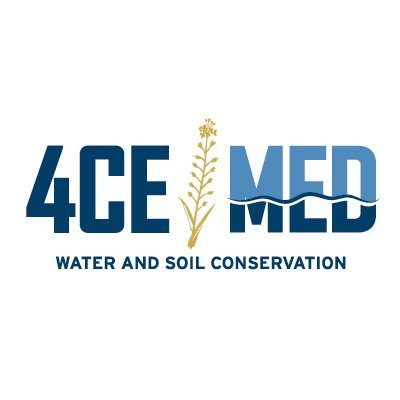4CE-MED project aims at developing Mediterranean innovative, diversified and resilient farming systems not competing for land with the actual food chain, following a participatory approach for identifying smallholder needs, while planning, monitoring and evaluating the project actions. The 4CE-MED systems are modified conventional farming systems including camelina, a promising oilseed crop for Europe, as a cash cover crop that might increase farmers’ revenue while enhancing soil and water conservation.
4CE-MED project will therefore fulfil all the three principles of Conservation Agriculture (CA): i) minimum soil disturbance, ii) permanent organic soil cover, and iii) crop diversification. Growing camelina as a cash cover crop or double-crop will allow increase organic cover soil while diversifying crop rotations. No-till/minimum tillage systems will help prevent soil disturbance; in addition, camelina seeds can source additional income for farmers. Three cropping systems will be investigated within 4CE-MED: i) camelina replacing fallow in cereal monoculture (very common in Mediterranean marginal land); ii) camelina replacing a winter crop to enable double cropping with typical Mediterranean staple summer crops, i.e. sunflower, sorghum, soybean; iii) camelina replacing a summer crop to enable double cropping with winter cereals or pulses, particularly in the areas with colder climate (e.g. central/northern France or Germany).

